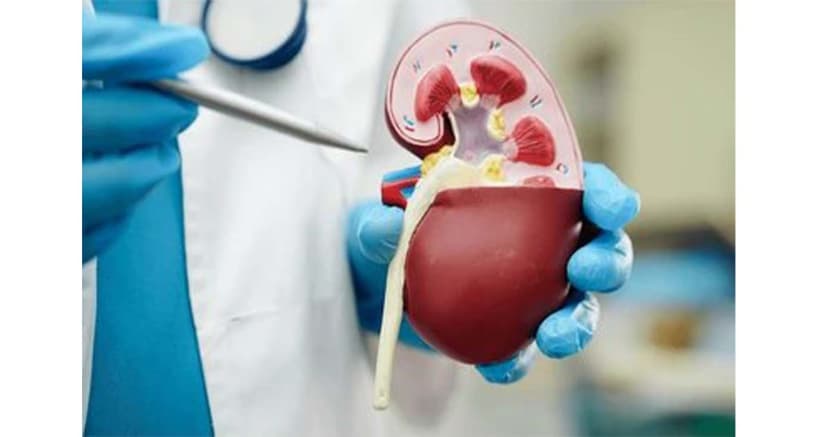10 Effective Tips for Maintaining Healthy Lungs: Easy Ways to Keep Your Respiratory System Clean
By:

Apex Hospitals
03-06-2024

You might not often consider their vital role, but your lungs are the powerhouse of your respiratory system, working tirelessly every day. On average, we take about 23,000 breaths daily. During each breath, our lungs filter out waste and infuse oxygen into our bloodstream, which then travels to every cell in our body.
It's easy to take our lungs for granted. Like your heart, joints, and other body parts, your lungs age over time. They become less flexible and lose strength, making breathing more difficult. Taking proactive steps to care for your lungs can help mitigate these effects and ensure they function optimally.
Tips for maintaining healthy lungs
Maintaining healthy lungs is essential for overall well-being and longevity. Here are some tips to keep your lungs in good condition:
1. Avoid Smoking and Second-hand Smoke
The fastest approach to strengthen your lungs is to give up smoking if you currently use tobacco products. Breathing becomes more difficult due to air channels being narrowed by cigarette smoke. Long-term smoking increases the risk of lung cancer and COPD, which includes emphysema and chronic bronchitis. Smoking also causes chronic inflammation or swelling in the lungs. Chronic illnesses and respiratory infections can also result from breathing in second-hand smoke. But your body starts healing the moment you stop smoking, and the longer you abstain from smoking, the lower your chance of getting sick.
2. Exercise regularly
Getting regular exercise is arguably the most important thing you can do for your lungs' health, next to not smoking. Exercise helps maintain your lungs' health in the same way it does your body.
When you exercise, your lungs must work harder, and your heart beats faster. Your body requires more oxygen to power your muscles, and your lungs work harder to provide that oxygen and evacuate more carbon dioxide.
3. Stay hydrated
Maintaining adequate hydration is beneficial to general health and aids in the development of healthy lung function. Water consumption facilitates breathing by thinning the mucus secreted by the lungs, which is particularly beneficial for those suffering from lung conditions like COPD.
4. Improve indoor air quality.
Even though you can spend more time outside, you still need to spend time inside your house. Maintain a spotless environment by routinely replacing air filters, vacuuming, dusting, and washing linens.
5. Eat a healthy diet
Consume fruits and vegetables rich in antioxidants to fight oxidative stress and inflammation. Additionally, reduce your intake of processed and high-sodium foods, as these can cause fluid retention and impair lung function.
6. Avoid infections
Respiratory infections, such as colds, can quickly impact lung health and may lead to severe complications. To protect yourself and others, washing your hands with soap and water regularly is essential, as is avoiding touching your face with unwashed hands and maintaining a safe distance from others, mainly when respiratory illnesses are prevalent in your community. Additionally, stay home when you're feeling unwell to prevent spreading illness to others and ensure you are vaccinated against respiratory diseases like the flu.
7. Practice deep breathing
Much like physical activity, breathing exercises can strengthen your lungs, enhance lung function, boost lung capacity, and aid in cleansing your lungs. Unlike physical exercise, you can efficiently perform breathing exercises at your work desk or during your commute.
8. Protect Yourself in Hazardous Environments
To minimize lung exposure to harmful substances in the workplace, use protective masks when exposed to dust, fumes, or chemicals, and adhere to occupational safety guidelines.
9. Practice Proper Posture
Good posture can help maintain open airways and improve lung capacity.
10. Get Regular Check-ups
Regular medical check-ups are crucial for detecting early signs of lung disease. If you exhibit symptoms or have risk factors for lung disease, consider getting lung function tests for timely diagnosis and treatment.
Discuss your lung health with our pulmonologists, including any breathing issues you may have and whether you currently smoke, vape, or have a history of smoking. For comprehensive lung health care, consider scheduling regular check-ups at Apex Hospitals. Our Department of Pulmonary Medicine uses advanced technology for thorough evaluations, early detection of potential issues, and tailored care plans. Early identification through regular assessments can lead to more effective treatments and better long-term outcomes. Prioritize your respiratory health with Apex Hospitals—where your well-being is our top priority. Book your appointment today and enjoy the confidence of expert care.
FAQS
Related Articles
Connect With Us
Health In A Snap, Just One App.
KNOW MORE
























































































































































